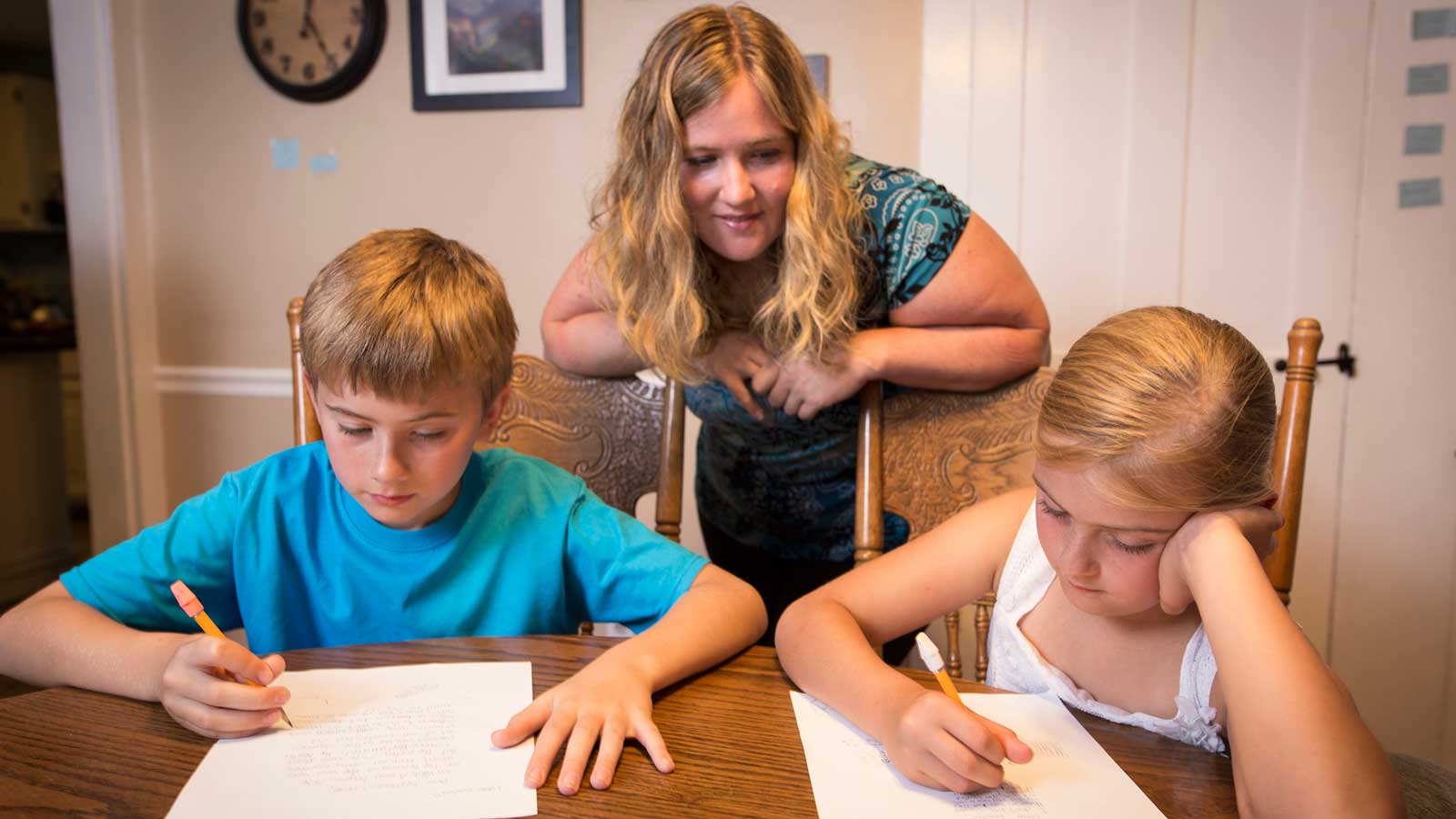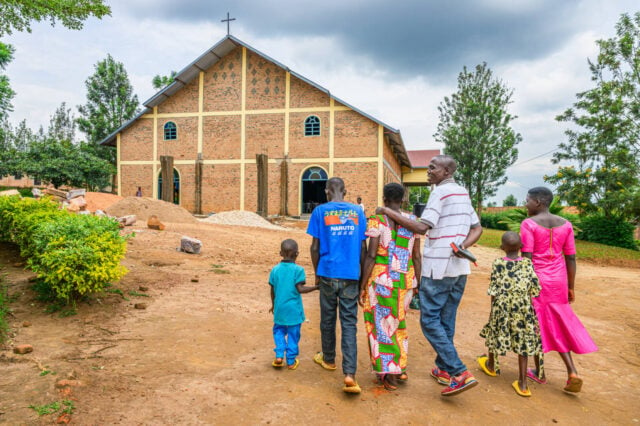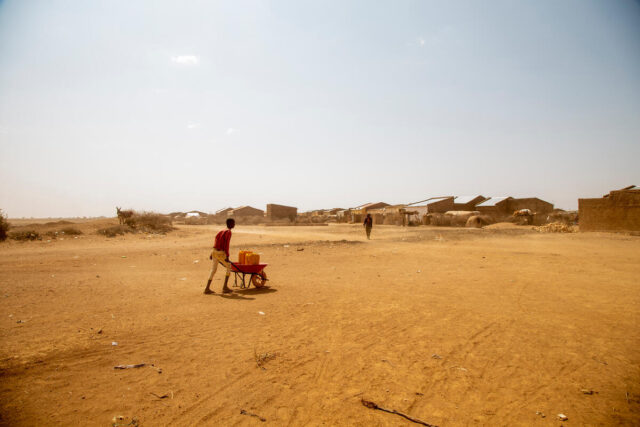If you think your kids are too young to learn about global poverty, Anna Goodworth would challenge you to think differently.
“Most people think their kids are going to get scared or angry at the world or angry at God,” she says. “The idea for me is God is bigger than that, and our kids have to know that. They’re going to be scared at some point, whether it’s monsters under the bed, a bad news story, or daddy getting into a car accident — these topics are scary, but parents can phrase them well, and they’re easy topics to give words to.”
Anna, who has three children ages 11, 9, and 6, has been intentional with how she speaks to her kids about issues related to poverty. In fact, her children wrote their congress members and helped influence one of their representatives to support an anti-trafficking bill, which is now law. Read about these advocates in action.
“Every parent has to be smart about what their kid’s temperament is. You don’t have to talk about sex trafficking, but you can talk about kids who are forced to work,” Anna says. “It’s sad that we don’t give them things to worry about that they can change. We always have things to worry about, but it’s just what is it and how much power do we have to change it.”
So how can you actually talk to and encourage your kids to think about the world around them? Anna wrote a book called “Less: Raising Youth to Live Missionally,” and she shared with us nine tips for raising your kids to be missionally minded.
1. Map it out.
Anna suggests planning out your summer, or whatever time frame that you prefer. She’s done what she calls a “summer of service,” where she maps out 12 weeks and focuses on one issue each week so as to not overwhelm her kids with multiple issues simultaneously. Having an end point or set time frame in mind helps focus your kids, but also keep you motivated in the midst of your busy to-do list. “I may say, ‘Okay, this week it’s refugees. Let’s read one book on refugees and do one act of service. Let’s bring cookies to some refugees living in a nearby apartment,’” she says. “It doesn’t have to be much, but it should expose them and empower them in some way.”
2. Focus on relationships.
One way to help your children understand others is to help them build relationships. Whether it’s with sponsored children through letter writing, or simply volunteering at projects that expose them to different people, help them build relationships with others.
3. Tap into the power of story.
Use books, movies, and documentaries to reach your children. “A story isn’t a statistic – it’s something they care about,” Anna says.
4. Use their natural interests.
If they already care about a certain issue, jump on it, and encourage them to learn more about it. Empower them to get involved with helping in that area. “Kids will respond to a need if they feel empowered that they have something to offer – even as a kid,” Anna says. They can raise money, donate their allowance, or request donations in lieu of birthday presents to support their cause. They can also have you use your social media accounts, or theirs if they’re old enough, to collect items, such as a clothes drive. “Kids love to feel like they’re helping and gathering,” she says. And if you hear them talking about some of these topics, encourage them to learn more. “Having my kids teach others about issues they knew a little about forced them to know a lot more,” Anna says. It can be as simple as choosing topics about poverty during geography or science fairs, and it can be as involved as hosting a group at your house or speaking to a Sunday School class.
5. Pray about it.
As you expose your children to other kids’ and families’ stories, encourage them to recognize ways they can pray for the people they’re learning about. Ask them what they can ask God to do in those others’ lives and situations in both a physical and emotional way. Then, during family prayer times, have them pray for those specific needs they saw and learned about. If you’re not sure how to get started, use our prayer guides to get going
6. Act it out.
Think of ways you can physically show them what others face. Anna’s family has done stretches where they only eat rice and beans for their meals to show what some families eat day in and day out. Discuss as a family what that’s like after a week. Or to show them what a refugee may face in fleeing, she suggests giving them a small suitcase and saying they can only take five things to help them survive and live in another place. Do they take their toys? Or do they take water? Have them do the activity and then discuss what it would be like. We have a video that can help provide discussion as well.
7. Use international recognition days.
These United Nations’ days are designed to bring light to many topics and issues related to global poverty. Look out at the year ahead, and pick some you and your family find interesting. Then plan activities around them.
8. Reward them.
You don’t want to use rewards as a primary motivator because it can turn into a false motivation in your children, but it’s still okay to acknowledge their effort and work. Anna says you don’t want to only, say, give your kids candy for raising money, but instead offer something along the lines of whoever has the most successful idea will get to choose a family activity they want to do together at the end of the summer.
9. Let it go.
If you’re getting stressed out and tired about it, chances are your kids are too. If they’re not taking an interest, don’t force it upon them. Wait for other opportunities when they’re more interested and engaged. Anna says, “Sometimes they get tired of me. They’ll get really selfish, and I want to hammer it down, and that’s not right. I find my reaction isn’t right — they’re just kids figuring it out, so sometimes we just lay off of it.”


